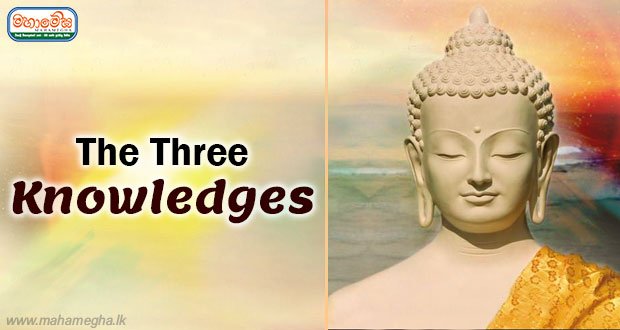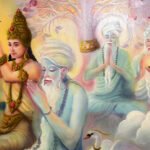What is an inheritance? One meaning of it is; money, property, jewels etc. that you receive from somebody, usually a family member, when they pass away. Why would the predecessors in a family leave wealth to the younger generation? What do they expect from you? They save their wealth and pass it on, hoping that the inheritor would make use of it to make their lives better. That wealth is meant to make the inheritor’s life better. Accordingly, as disciples of the supreme Buddha what have we inherited from our ancestors? We have inherited the noble Dhamma, the teachings of the Supreme Buddha. We have inherited the path to be free from every problem, suffering, fear, stress, desire. We have inherited the beautiful advice on how to be truly happy, how to experience the calmness, serenity and complete bliss. Do you see, thus, the value of what we have received from our ancestors, the great Arahats and great bhikkhus who devoted their lives to protect the noble Dhamma.
With great compassion the Supreme Buddha expounded the noble Dhamma for the benefit of many, for the comfort of many and for the well-being of gods and humans. That noble Dhamma is; the four foundations of mindfulness- Sathara Satipatthana, the four efforts to uproot defilements-Sathara Sammapadhana viriya, four bases of mental power-iddhipadha, five faculties –Panca indriya, five powers-panca Bala, Seven factors of Enlightenment – Sapta Bojjhanga, the noble eightfold path – Ariyo Atthangiko Maggo.
If the inheritor, however, doesn’t make use of his inheritance, can he make it beneficial to himself? No, an inheritance is not magic or a gene (unless of course you inherit Aladdin’s lamp). It doesn’t have a mind of its own to replicate or be invested and provide benefit to the inheritor. The inheritor, upon understanding the value of his inheritance, should utilize it if he wants to benefit from it.
Likewise, upon inheriting this excellent word of the supreme Buddha if we wait for the Dhamma to magically take away all your sufferings then we are wrong. If we buy all the books on Dhamma carefully store them in a clean safe and hope the power of the books would protect us, then we are much mistaken. We have to learn the Dhamma, associate Dhamma closely in our lives, develop within us through practice and refine our practice until the noble words are realized. When we do that, subsequently, the magic of the supreme words take place in us and take us towards the true protection and happiness.
The most compassionate teacher, the Supreme Buddha in one occasion explained that a disciple who listens to Dhamma must cultivate six qualities in order to understand the noble words clearly.
- Sussussati – one must develop a great liking to listen and learn the noble Dhamma
- Sotan odahati – must listen with attention without letting the mind wander off.
- Annayacittan upatthapeti – must engross in Dhamma and endeavor to realize it.
- Atthan ganhaati – must try to understand the meanings clearly.
- Anatthan rigncati – must let go of any confusions that occur by misinterpreting the explanations.
- Anulomikaaya khantiya samannagato hoti –must try to realize the Dhamma by repeatedly applying it to oneself.
The noble Dhamma is not a subject we learn and just remember like, history or science or a subject like literature where we explore another person’s work and enjoy. Dhamma is an ongoing investigation, an active learning we use to explore ourselves, to understand what is happening within us.
In ‘Phala sutta’ the Supreme Buddha explained that a disciple who wants to realize Dhamma must constantly adhere to these four practices.
- Sapsurisa sansevo – associate with friends who teach the pure Dhamma without distorting the meaning.
- Saddhamma savanan – listen to the noble Dhamma they teach.
- Yonisomanasikaro – recollect and reflect the Dhamma according to the correct methods taught.
- Dhammanudhamma patipada – apply Dhamma to life with diligence and effort.
Therefore, we must understand that just because we have inherited this noble Dhamma, just because we consider ourselves as disciples of the Buddha, the realization, the freedom, the bliss will not come to us until we follow the methods taught constantly and repetitively.
Hence, on this most special day of our lives, we will make a silent pledge to realize the value of our inheritance, see how fortunate we are right now and benefit from our great inheritance, the noble Dhamma!











Recent Comments